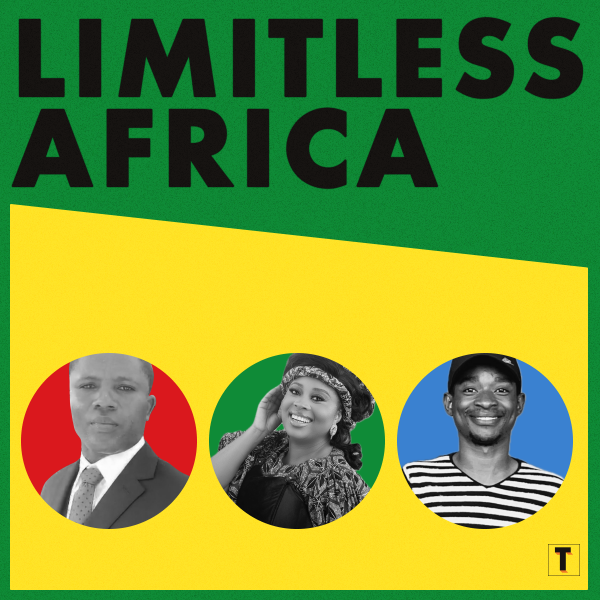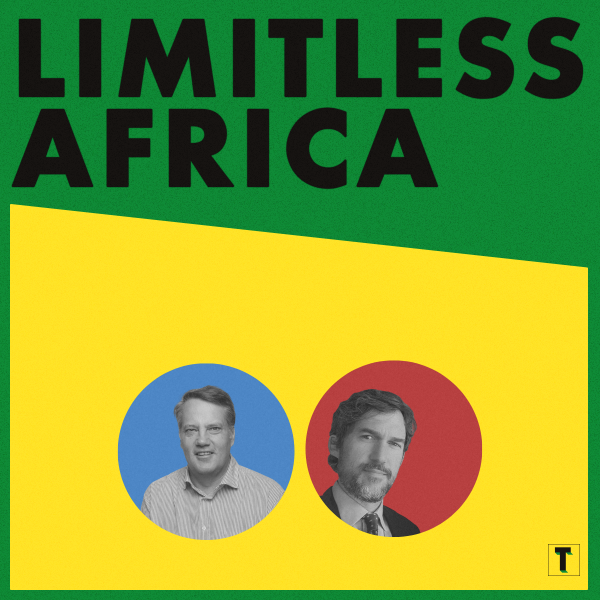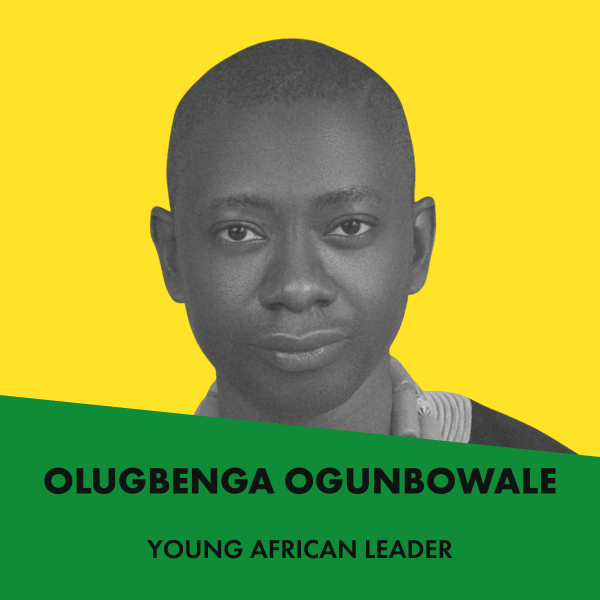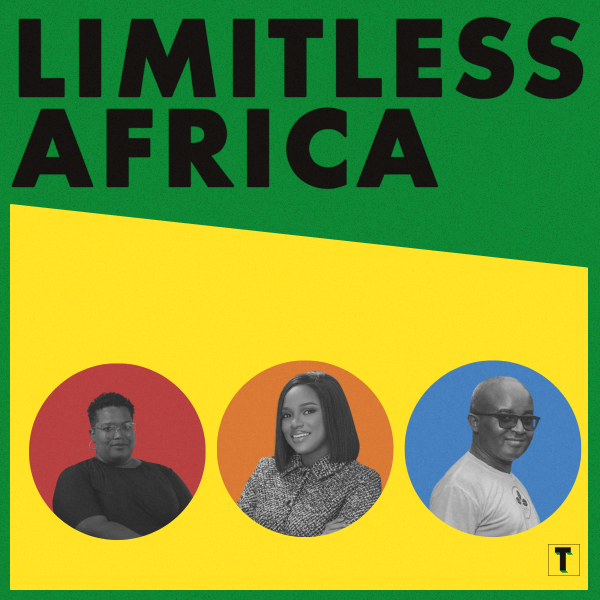What's it like to start afresh in the USA?
With guests Benita Okojie, Koffi Agbozo, Xolani Mzileni

Episode notes
Migrants have made America. And for many, the dream is still to come to the US. But what happens when that dream comes true? Three Africans tell us about coming to America.
Transcript
In this episode, we’re talking coming to America
Migrants have made America. And for many, the dream is still to come to the States. But what happens when that dream comes true? I spoke to three Africans who have just arrived – legally! – and are still finding their feet.
First up is Xolani Mzileni, a South African student from a small town outside of Johannesburg. He’s doing a Master in Public Policy and Administration at the Illinois Institute of Technology. Here’s our conversation:
Claude:
I kn...
In this episode, we’re talking coming to America
Migrants have made America. And for many, the dream is still to come to the States. But what happens when that dream comes true? I spoke to three Africans who have just arrived – legally! – and are still finding their feet.
First up is Xolani Mzileni, a South African student from a small town outside of Johannesburg. He’s doing a Master in Public Policy and Administration at the Illinois Institute of Technology. Here’s our conversation:
Claude:
I know that cultural differences are very real, right? So tell us a little bit about what’s been challenging for you in your period of adjustment.
Xolani:
One of the challenging things is being an African student; yes, there are African students in the university but it’s only few students compared to people from other places such as India. There’s like a lot of Indian students and I have a lot of Indian friends as well because we work together. So one of the challenges is: I do want to hang out with my friends from India especially in groups? But it is challenging because they speak in a language I cannot understand.
I’m used to what we call South African ‘pap’. There’s no pap here. You know? So I had to adapt to different food as well. And yeah, the diversity is there and it requires me to be outgoing, be willing to learn, be willing to learn about new cultures and adapt into different groups that are present in Chicago and at Illinois Tech as well.
Claude:
And there’s something about American culture that is very different from most African cultures and certainly from South African culture which is directness in communication. Americans are very direct straight to the point and they tell it like it is and how did you adapt to that mindset?
Xolani:
Yes. That’s true. At first it was a little bit challenging. But then I got to experience that in class because I could see like most of my colleagues or classmates they would just speak freely and sometimes if I want to speak freely I would think twice and try to put things indirectly.
So it took me some time and learning from American natives students on how they actually get comfortable at saying things as they are and directly so. I am not used to saying things the way they are unless otherwise I am forced to so. I had to move out of my corner and adapt and that’s that’s how I actually dealt with it.
Claude:
The other thing I wanted to ask you about is punctuality which is something that we often talk about the difference in American norms versus what I’ll just call African norms to generalize a little bit. What was that like for you?
Xolani:
Ah, yes. That is also a little bit of a challenge. When I do my research I also find out that Americans are very punctual like they always on time and when I came here I still had that mindset that being late 2 minutes is not that bad but then in all spaces where I had to you attend and time was set. I would only be the the person who is late with that one minute and it felt so bad. So I was like no I cannot continue like this. This is not Africa and time management is also important. So if I want to make it in this country and I need to actually work on being punctual and setting reminders, setting alarms to make sure that I’m available at the time that is set for certain activities and tasks. So yeah, but at first it was quite a challenging thing or I didn’t take it as important as it was until I realized that actually this is something that is important. I need to work on it so that I can actually adapt and be a better person. Yeah.
Claude:
On that note, what have you learned in the United States that you will take back home to South Africa?
Xolani:
One of the most important things is that Americans as citizens are more vocal about things that they do not accept or like from their government or their state. They are involved in a lot of activities that contribute towards economic development such as partnership programs with the government, running NGOs. For example, the USA is one if not the best country that has a lot of NGOs as part of their system. That’s one thing that I believe that if we can have individuals and the government contributing into nonprofits, as much as it is done here in the US, there would be a lot of growth and development back in Africa instead of just you know relying on government and private sectors. Americans are willing to give. Americans are hardworking. So those are some of the things that I’m willing to take back. And as I’m continuing with my studies I hope to learn more that I can actually take back to South Africa.
Claude:
Our journalist Tawanda Mudzonga spoke to Benita Okojie. She moved from Lagos, Nigeria to a small town in Georgia USA with her husband and two small children. In Nigeria she is a successful gospel singer. She started off by telling Tawanda why she moved to the South rather than the bright lights of NYC.
Benita:
I was definitely looking for a place that will be conducive enough to raise children. Because if it was just me it’s definitely different, probably to New York or something. If it was just me right. But because I have children, I’m like, Well, I want a place that is family friendly.
My son really likes his school and, trust me, as a mom, that makes me so happy. Those are the moments that made me feel like we made the right decision, to bring them with us because you really want, pray, and hope that they are the ones that are not feeling left out when you make such a huge big decision
Tawanda:
What’s it like raising two little Americans?
Benita:
Well two Nigerians who are in America, I tell you that. we’re pretty sure it’s definitely different because they have come at a pretty young age. For me, I already know who I am. My identity is already rock solid because I already have grown in Nigeria. I know what I know what I stand for.I know my country. I know what our culture is. I know what our traditions are. I know what it is to be a Nigerian. But they are pretty young.
And I was saying the other day how my daughter’s English – I was just talking my mom this morning and she was trying to talk to my daughter and we pretty much can’t hear what she’s saying any more. She’s four and she came here what nine months ago. And she’s just speaking to us, she has this American accent now and then we have to be like, um, can you repeat yourself because we don’t know what you’re saying anymore. So it’s really weird, but that definitely for me as a mom, it means that I have a lot of work to do in terms of raising them so they don’t forget first that they’re Nigerians, first before Americans.
America is a great country. There’s so many opportunities here. I’m not even going to pretend that there aren’t there are a lot of opportunities here. But for my daughter and my son I want them to first know that they’re Nigerians.
Tawanda:
In Nigeria you are a successful gospel singer. When are we going to see you singing on stage in America?
Benita:
I’m definitely now more excited to like get into the gospel industry now. Because when I came up first, settling the children was definitely number one thing. Finding our church, our church community, too. There was a lot of finding and finding and so now I feel like I’m now in a better position to now see okay, now I want to do music here in the US. And so it’s been a lot of intentionality.
I surround myself with friends who also are musically inclined, who also love gospel music. You know how this thing it works. You talk to someone who knows someone who knows someone who knows someone… right now, I’m looking for CeCe Winans every corner. Is she in Georgia? I’m literally everywhere looking for her. And I feel like it’s great that I’m in America because that feels like I’m getting really close to meeting these people. And it’s only a matter of time.
Tawanda:
How did you choose your church where you sing?
I’m in America now. It’d be good to see what an American church is like. That’s actually the mindset I had when I came to America. Right. So we went to an American church, I’ll be very honest with you. I felt like that was where I wanted to be. Okay. So we went there a couple of times. And I said, Well, I think I’d like it here, I’d like to be part of their choir or their team, you know, the worship team, the choir in church.
What I’ve learned also is that the churches that they’re at, they’re not completely different, but they’re not completely the same. But one thing was one thing that stands out, they are preaching the message of Christ. So that’s what stands out for me. But in terms of the churches, I really liked that the church where I’m at is so diverse. It’s an American church, but it’s diverse because you see Nigerians there. You see Americans there. You see Spanish people there. You see, it’s a pot-pourri of a lot of nations and countries. And so I love that it’s rich in diversity. And I feel like it’s healthy for our children. So they see that even though they’re Nigerians, there’s so many other people that represent different parts of the world and that come to have a great time in church.
Claude:
Now I speak to Koffi Agbozo, who I actually know from Togo. He works with us here at Limitless Africa. He moved to New York City in the fall of 2023 with his three children despite the fact he doesn’t speak English well – yet!
I started off by asking him why he left Togo for an unfamiliar country – one that he knows a little but his children don’t…
Why leave Togo to come to an unfamiliar country, that you know a little but your children don’t?
Koffi:
What made me come to the US was the children. In America, I see that young people invent things. For example, Facebook, WhatsAap, everything we use in technology was developed here – or in China. So I want my children to do something for the glory of their country.
Claude:
What were your first impressions arriving in November 2023 – how was it?
Koffi:
First, I’d say it’s not easy. What I realised is that if you don’t have the proper papers to stay in the US, it’s really difficult. And getting work isn’t as easy as you might think. You have to have qualifications, you need to speak English well, and that’s how others have an advantage.
Claude:
Exactly! how do you manage without speaking English well?
Koffi:
You know me, I don’t take it easy. Every day I do English classes, every day 30 minutes…
Claude:
On YouTube or Duolingo.
Koffi:
On YouTube or Duolingo. What I like is that when you try to say something here, as soon as they understand what you’re trying to say, they will encourage you.
It’s not like at home where if you make a small mistake in French, people make fun of you. It’s not like that here.
Claude:
Americans are very positive, they encourage people, they are known for that. WHat type of work are you looking for?
Koffi
At the moment I am looking for work in security as I have trained as a security guard.
Claude:
But at the moment there are lots of migrants who’ve arrived from South America. So there are millions of people looking for work so there’s more competition.
Koffi:
Exactly. There are businesses that want to pay less than the minimum wage. They want to take immigrants who are here without papers and pay them less and cash in hand.
Claude:
What are your projects in the future?
Koffi:
I have long term projects. Little by little, the bird lays his nest. Since childhood I have dreamt of driving a truck. Little by little. I will do the training, get a long-haul truck driver licence and … well that’s my dream.
Claude:
I remember how they feel. 26 years ago, I arrived in NYC and was faced with the daunting challenge of building a life here in the US. In my heart I am still a young man from Lome, but the US has taught me so many things. I am an American now too. This is the land of limitless opportunity, and I can’t wait to hear how our guests seize the days ahead of them.
Listen next
The next generation of mines bringing value to Africa
With guests: Ben Kincaid, Derrick Roper, Mzwaa
LISTEN NOW 15 min
"If there is something that Africa can learn from America, it's that abundance mindset."
With guests: Olugbenga Ogunbowale
LISTEN NOW 33 mins
How a US exchange program fostered a generation of entrepreneurs
With guests: Gerald Katabazi, Simone Spencer, Temi Badru, Vanessa Delgado
LISTEN NOW 15 min








